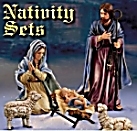Who Were the Magi?The Gospel of Matthew is the most inclusive gospel - that is, Matthew seems to go out of his way to show that Jesus is the king and savior of all people, not just the Jews. As an example, in the very first chapter, Matthew lists the Gentiles in Jesus' ancestry: Tamar, Rahab, Ruth, and Bathsheba (who may have been a Hittite and certainly had been married to one). In the second chapter of Matthew's gospel, we read that Jesus' birth was commemorated by "wise men from the east," who undertook what would have been a long and dangerous journey to pay tribute to the "King of the Jews."
How Would the Wise Men Have Known About the King of the Jews?What Matthew doesn't say, but what his Jewish readers would have known, is that centuries earlier, there was a mass deportation of Jews to "the east" - Babylon, modern-day Iraq. And many Jews, including Daniel, had, not only maintained their Jewish religion and heritage, but had also become advisors to kings and emperors. Daniel himself survived as a civil servant among three entirely different administrations, ending up in Persia (modern day Iran). Yet he maintained his religion the whole time, and fellowshipped with likeminded believers when he could. We don't know that Daniel left anything like a "synagogue" when he passed from the scene, but it is very likely that he left his own writings, his copy of the Torah, and handful of younger men acquainted with his peculiar devotion to One God. What Were "Wise Men"?In the days that Daniel spent in the royal courts of Babylon and Persia, the emperors would surround themselves with learned men from all fields of "learning," even fields that most modern folks would dismiss as "magic" or "spurious." People we would compare to modern-day scientists, economists, and business managers rubbed shoulders with fortune tellers, alchemists, and priests of many religions. This class of learned men whom the emperor would consult for guidance were called chakkiym. In Daniel 2, the emperor's counselers are called "magicians, astrologers, sorcerers, and Chaldeans." (Chaldeans were an ancient culture with strong traditions of astrology and soothsaying.)But that list doesn't mean that the emperor looked exclusively to fortunetellers and magicians for guidance. In fact, the chakkiym included other men who did not practice black arts. These included Daniel and his Jewish friends Hananiah, Mishael, and Azariah (also known as Shadrach, Meshach and Abed-nego). Yes, Daniel's service to the emperors did include occasional interpretation of visions. But most of his career seems to have involved administrative functions. Could Daniel's Religion and Writings Have Had Influence Beyond His Lifetime?Daniel's ability to retain a series of civil service position through bloody coups and in very disparate administrations must have giving him opportunity to spread the word about the One True God through several Middle-Eastern cultures. I believe it is quite possible that Daniel's writings and his library of Hebrew scriptures were still being studied by his successors in Persia generations later. We don't know how Shadrach, Meshach and Abed-nego fared in the later years, but each of them could have had an effect on their surroundings as well. Did Daniel's Vision Cause the Magi to Watch for the Coming of Messiah?Another factor that may tie Daniel and his successors to the "magi from the east" is Daniel's vision of the "weeks" (Dan 9:24-26). The relevant part of the vision is quoted below: Seventy weeks are determined upon thy people and upon thy holy city, to finish the transgression, and to make an end of sins, and to make reconciliation for iniquity, and to bring in everlasting righteousness, and to seal up the vision and prophecy, and to anoint the most Holy.
Although the language seems obscure by today's standards, most people interpret this as setting a sort of timeline for the coming of the Messiah. It helps to know that the "weeks" probably mean "periods of seven years," as the term is used elsewhere in the Old Testament (see Leviticus 25:8-10), so the "seven weeks" means forty-nine years and so on. As I read it, the start of the countdown would be when the order was given to rebuild the walls of Jerusalem (probably before the time of Nehemiah's return, which some scholars place around 445BC) Then after 483 years (7x7 plus 7x62), the Messiah ("anointed one") would be "cut off." If you subtract 445 from 483 you get 38 years, which could signify that the Messiah would be killed by about 38AD. Of course Nehemiah may have received the order to rebuild Jerusalem a few years earlier than 445BC. A slightly earlier date would coincide better with the crucifixion, and a five- or ten-year discrepancy in ancient Persian history is not unheard-of. Actually, Bible scholars have sliced Daniel's "weeks of years" hundreds of different ways. Some use a different starting point. Some put the "seven weeks" (49 years) after the "sixty-two weeks," and so on. But most interpretations have the Messiah coming somewhere between 100BC and 100AD. So perhaps the magi were not just watching the stars as many assume - they may have been trying to work out the math of Daniel's vision. And the appearance of a brilliant new star that couldn't be explained by "normal" astronomy may have just been the final sign to them that the Messiah had been born. Why Does Matthew Use the Term "Magoi"?The Greek word "magoi" is the plural of "magus," usually translated "wise man," but is sometimes translated "magician" as it is in Acts 8 regarding Simon the Sorcerer. But remember that within pagan cultures, there was little distinction between scholar, priest, and sorceror, so using this term for the "wise men from the east" does not necessarily imply that they worked magic or even that they studied the stars in the same way as their Chaldean countrymen. We have no reason to believe that they were kings, although they may have been people of importance in their homeland. The notion of "kings" may have crept in because their gifts and their sacrificial journey imply that they had substantial resources. Nobody knows how many they were; the medieval notion that there were three probably comes from the fact that only three gifts are mentioned.What Do the Gifts Mean?Many studies of this event focus on the significance of the gifts that were given, all of which were suitable for a king or even a Son of God, and one of which seems to be prophetic.
What Do the Wise Men Mean to Me?To me, the account of the Magi's visit to Bethlehem has at least the following lessons:
In short, although popular culture may trivialize the magi's journey or treat it as a myth, we believe that there was nothing mythical or trivial about their sacrifice. And there is certainly nothing trivial or mythical about the Child they traveled so far to see. God grant you and your loved ones grace and a spirit of generosity and service this Christmas season. Paul D. Race, Family Christmas Online If you have any corrections or comments you would like to make about this page, please contact me and I will be glad to hear from you. God bless - Paul
|
To return to the Christmas Musings page, click here.
To return to the Family Christmas OnlineTM Home Page, click here.
Note: Family Christmas OnlineTM is a trademark of Breakthrough Communications(tm) (www.btcomm.com). All information, data, text, and illustrations on this web site are
Copyright (c) 2006, 2007 by Paul D. Race.
Reuse or republication without prior written permission is specifically
forbidden.
Family Christmas Online(tm) is a participant in the Amazon Services LLC Associates Program, an affiliate advertising program designed to provide a means for sites to earn advertising fees by advertising and linking to amazon.com.
For more information, please contact us

| 
| 
| 
| 
|